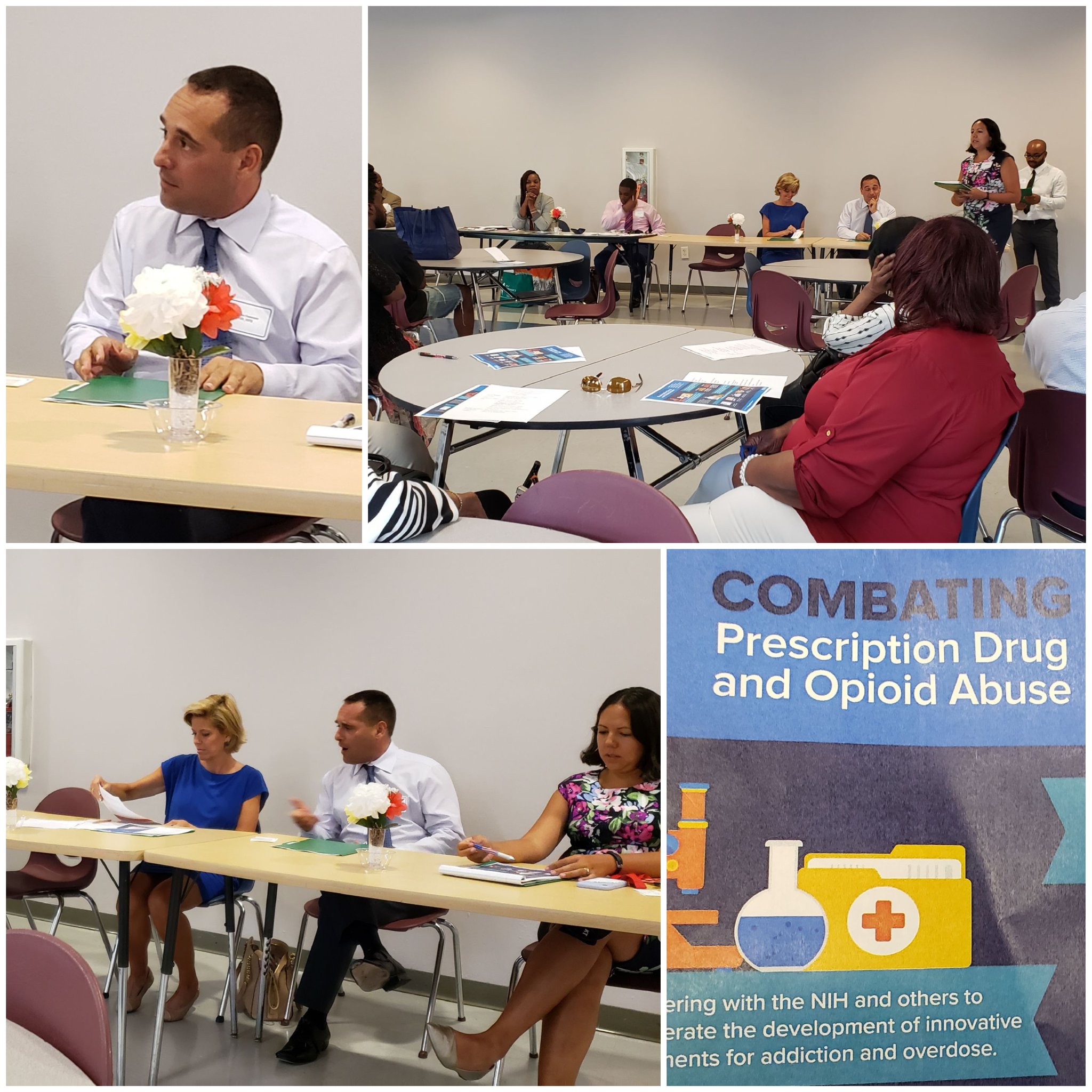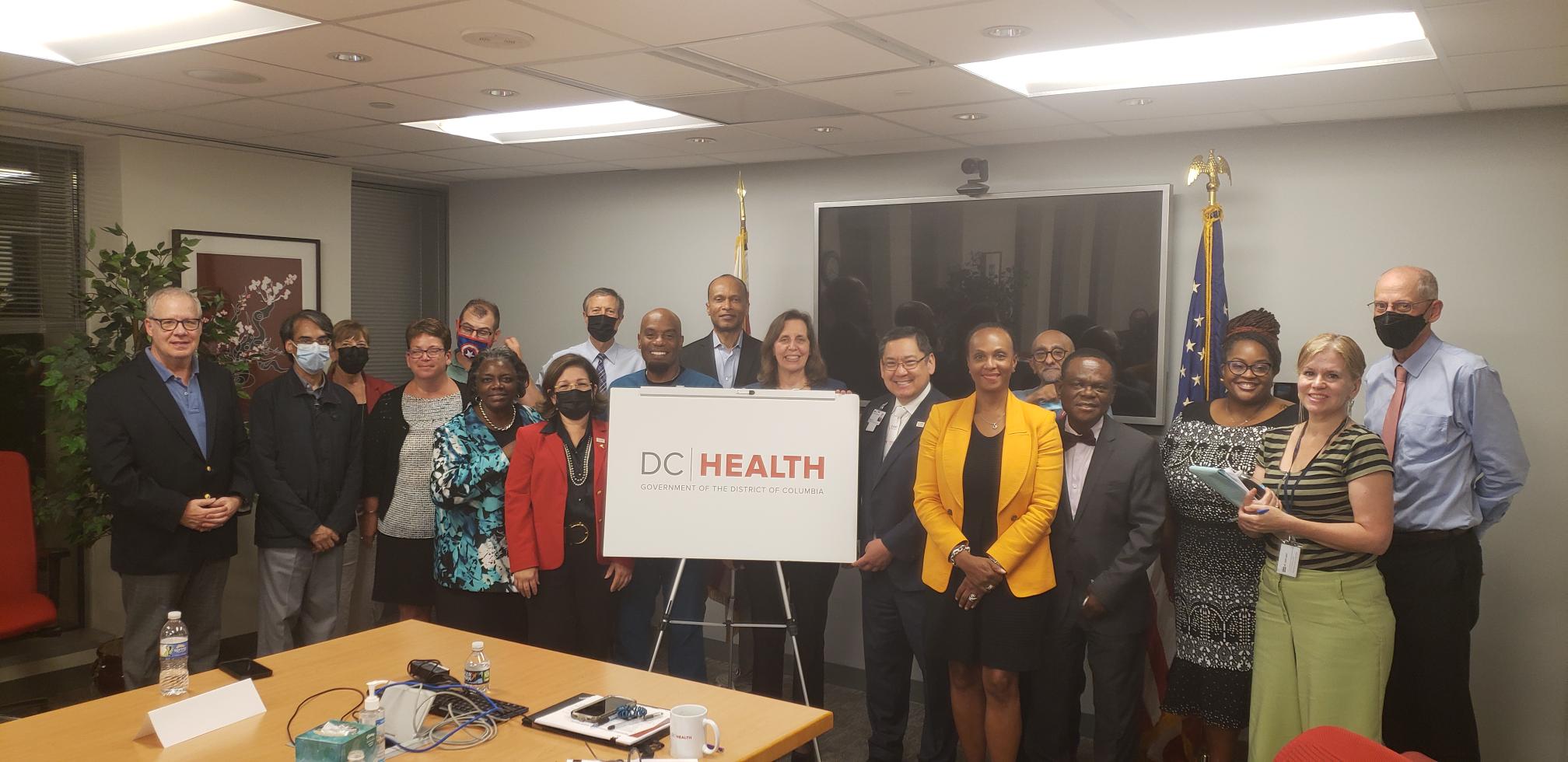Opioid Policies

Much like the rest of the United States, residents of the District of Columbia are struggling with substance use disorder (SUD) rate increases and high rates of opioid-related deaths. Unfortunately, these are multi-faceted issues that require year-long initiatives and systematic programs to address the myriad causes of addiction.
MSDC stands as a partner to the District government and private entities to help arrest the rates of opioid and substance abuse in the District. Through our advocacy for better prescribing practices, education on addiction, and even helping our own community through our Physician Health Program, MSDC is working to make DC a leader in reducing SUD, OUD, and addiction.
On a related note, MSDC is passionate about helping patients make prescriptions and medication more affordable. Whether expanding access to biosimilars or advocating for more affordable co-pays, MSDC wants to help our patients afford the medications they need.
MSDC Statement and Testimony on Opioid and Prescription Issues
25th Council information coming soon
MSDC and DC Health Recognize a Strong and Enduring Partnership

Last night, MSDC held its September Board Meeting at DC Health Headquarters at 899 N Capitol St NE, Washington, DC. In attendance were many DC Health leadership staff and MSDC Board of Director members. This is MSDC’s final board meeting before the new leadership is announced and installed at the 2022 Annual Meeting next month.
MSDC Board Chair Dr. J. Desiree Pineda kicked off the meeting, recognizing the strong working relationship between MSDC and DC Health. Most notably, MSDC and DC Health co-hosted a webinar on medical license renewal in DC at the beginning of September. In addition, MSDC members have provided physician input to DC Health and the Board of Medicine on multiple topics. These include public health and licensure issues, such as minor consent for vaccination, maternal health, and interstate licensure.
DC Health Interim Director Sharon Lewis, DHA, discussed updates from DC Health including:
- DC Health's priority to make the District the healthiest place to live in the US
- Upcoming changes to the boards of licensing
- The District's national recognition for its public health responses to COVID-19 and monkeypox
- Concerns over childhood vaccinations and efforts to address vaccinations in school age children
- Changes and updates to the medical license process
- and more.
MSDC’s Board meeting continued with a full agenda covering many items. Among them were:
- As the 24th DC Council period heads into its final months, MSDC is vigorously pursuing its advocacy priorities. This includes legislation addressing reproductive health, copay accumulators, prior authorization, health equity, and more. To raise awareness and help legislation move forward, MSDC and its partners are conducting a Day of Action on September 20.
- The MSDC 2022 Annual Meeting is taking place on Friday, October 28, both in-person at the AIA Event Center near the White House and virtually. This marks MSDC’s 205th anniversary since its founding in 1817.
- UnitedHealthcare, an MSDC Corporate Partner, provided an overview of its Medicare/Medicaid dual-eligible program. See here for an overview of the program.
- MSDC reported on its participation on the Mayor’s Healthcare Workforce Task Force, in which MSDC assists the Administration in sustaining the District’s healthcare workforce.
- The MSDC Board recognized Dr. Laurie Duncan who is rolling off the Board of Directors in October. She has served MSDC in many capacities including her tenure as Secretary, Chair of the Bylaws Task Force, and member of the Physician Health Committee.
Sample of Legislation MSDC Tracked on Opioid and Prescription Policy
What does it do? The bill authorizes licensed pahrmacists to dispense interchangeable biological products and requires notifications to physicians when such interchangeables are dispensed.
MSDC position: MSDC has a position of priority support on this legislation, identifying its passage as one of its highest legislative priorities.
Current status: SUCCESS. The bill was passed by the Council and signed by the Mayor.
What does it do? The bill requires prescription opioid medications to include a statement that the drug is an opioid and opioids may cause dependence, addiction, or overdoes.
MSDC position: MSDC supports the legislation.
Current status: The bill had a hearing before the Committee on Health on July 29, 2020. MSDC leader Dr. Sam Kareff testified for the Medical Society. It passed the Council on November 10 and was signed by the Mayor December 7.
What does it do? The bill prohibits insurance companies from factoring the use of PreP in decisions related to disability, life, or long-term care policies.
MSDC position: MSDC supports this legislation
Current status: The bill was introduced on January 8, 2019 and assigned to the Committee on Business and Economic Development.
